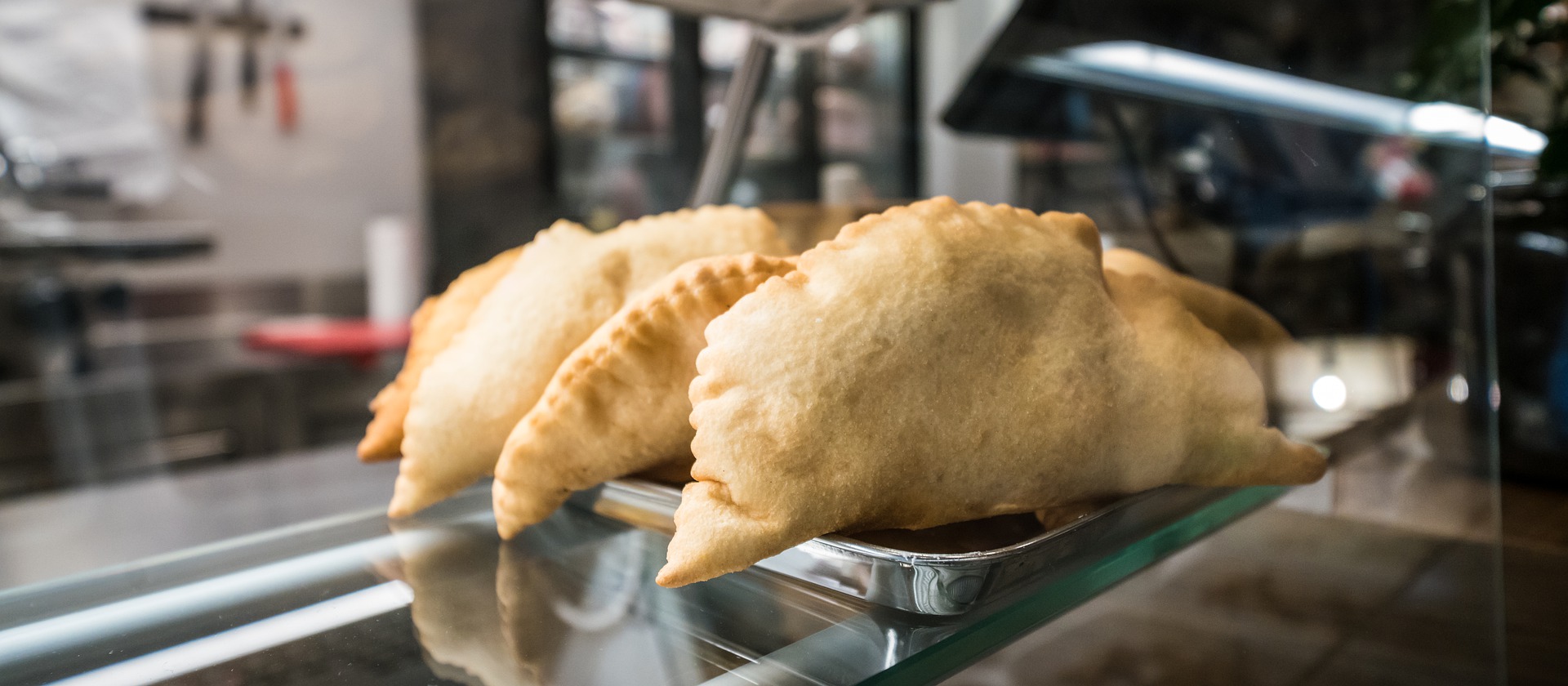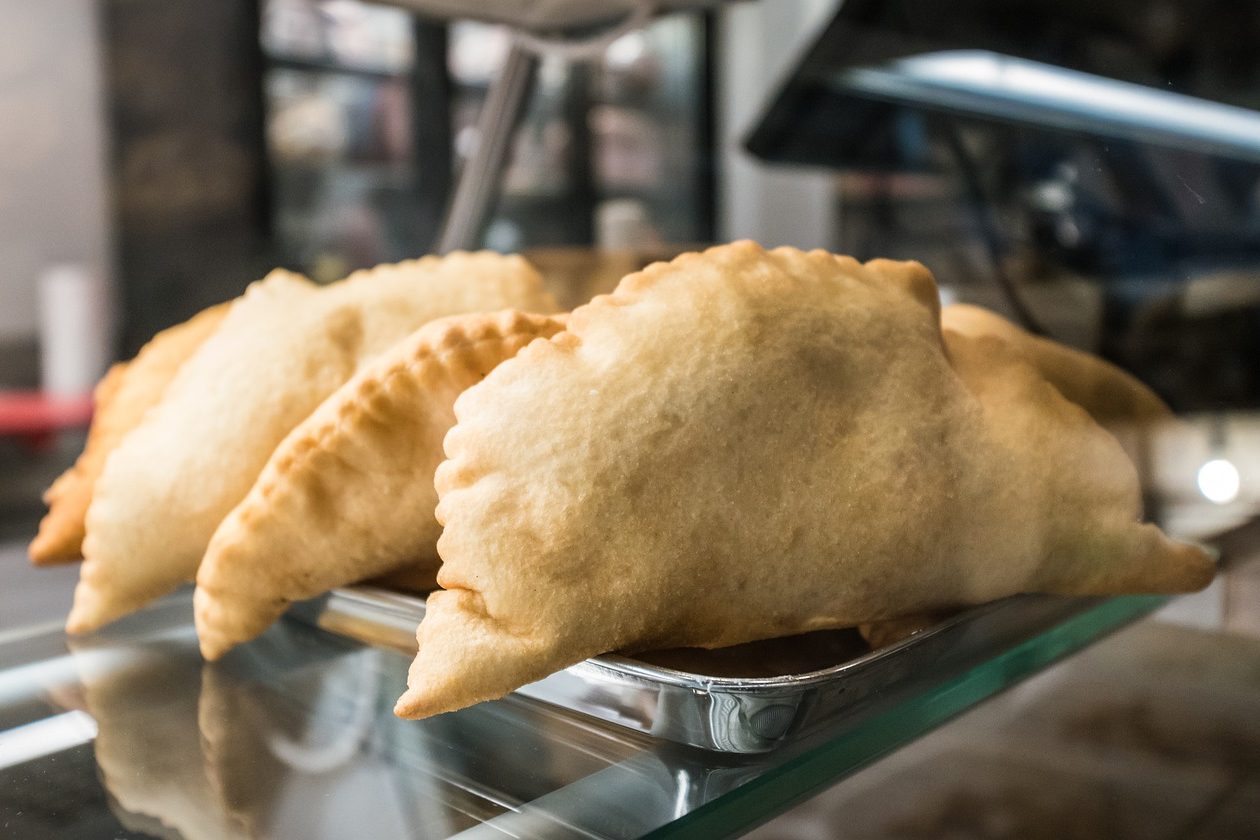Passeggiata and street food; all over Italy, the two words go hand in hand. The same is true every evening in Bari Vecchia, the old city of Bari, when the streets come alive with friends and family, and the air is rich with the aromas of fried sgagliozze and popizze, soft focaccia, fresh handmade sausage, sweet cream-filled cornetti, and delicious panzerotti, stuffed with tomato and mozzarella.
Walter Ferrante grew up in Adelfia in the southern region of Puglia, just 10 kilometers from Bari. He remembers frequently traveling the short distance to Bari Vecchia, wandering through Piazza del Ferrarese, along Via Venezia, and over the stones of Piazza del Mercantile. Some of his best memories are of the sounds and aromas of the old city, hanging out with friends and savoring the street food available in the nooks and kiosks scattered throughout Bari Vecchia.
“I really had an ideal childhood,” he shares. “I went everywhere with my friends, we were never afraid.” His father Leonardo was il postino, the postman. “They called him Nardino all his life. All the old women in my town would say, ‘hey, who is your dad?’ and I would say Nardino Postino and they would feed me. Everyone knew my father.”
When he was 16, Walter left Adelfia and took a seasonal job at a hotel in San Marino. The experience was exhilarating to the teenager and after a few months of meeting people from all over the world and having the freedom to do whatever he wanted, he decided to stay in San Marino. He went to work at the only local restaurant in town and lived with the owner and her two children. He became like another son.
Then after six years, he jumped at an opportunity to move to Brescia and work in a restaurant in Lago d’Iseo. “It was literally in the water,” Walter explains. “You had to walk across a little bridge to get in the restaurant.”
“I will tell you the truth,” he goes on. “I was a little scared to move to the north because of the legends about the Sud and Nord. But everyone wanted to be friends with you because they liked the way you talk, especially if you are from Puglia.”
In 2004, his friend, Francesco invited him to move to Sacramento and work in his new restaurant near the campus of UC Davis. Walter was anxious to see the United States, to find out what it was really like. He accepted the invitation even though he did not speak English.
“Because I knew my job, even if I didn’t speak the language I knew what to do,” Walter laughs. “I didn’t need to know English to see that someone needed a fork to eat their dinner.”
“I was also hopeful to start a family,” he continues. “In Italy, a waiter works very long hours, every holiday, every vacation. I did not meet anyone who wanted that life. I wanted to have my own family.” Within three months of arriving in California, he met Kristina and they married. Three years later, they moved to Vancouver to be near her parents and Walter began working at Riccardo’s Italian Restaurant in Lake Oswego. Along the way, sons Bobby and Wally were born.
After years of working as a waiter in restaurants in Italy, California and Oregon, Walter decided it was time to open his own business. On a trip back to Adelfia, he was visiting with friend Salvatore Flori when the conversation turned to the idea of opening a restaurant. “I wanted to do something for Portland and bring them something they didn’t know. No one was doing panzerotti.”
The idea of bringing Bari street food to Portland was a natural fit in a town well known for its vibrant food cart community; food cart clusters known as “pods” are located all over town. As it turned out, there was an opening in a pod at SE 52nd and Foster Road. Along with Salvatore and another childhood friend, Luigi Vitali, Walter began working up a business plan. They enlisted the help of Wendy Trunick Minervini, who used her experience in the food cart market to help the trio navigate through the permitting and licensing process. The Bari Food Cart formally opened in May.
Everyone who visits the Bari Food Cart is greeted like long-lost family, with a loud “Ciao, ciao” and “How are you today?” The greetings are warm and genuine; with his constant smile and the famous Pugliese friendliness, Walter is quick to explain the menu and help you decide what you want to eat.
For anyone who has never tasted panzerotti, you do not know what you are missing. Panzerotti are made of rolled out rounds of soft dough topped with a filling and then folded over and sealed. The little half-moons are delicately deep-fried in clear oil until they are tanned to a golden brown. Once drained and lightly salted, they are the perfect hand-held treat.
The dough is definitely key to a good panzerotti. It must be soft, not chewy, but able to hold up to the filling. After a visit a few months ago, Enzo Lanzadoro – himself a chef and owner of Enzo’s Caffe Italiano –declared, “If you get the dough right, then you will make good panzerotti. Walter has it right.” Enzo knows panzerotti – he grew up in Toritto, just a few kilometers from Adelfia.
Fillings are usually cheese, meat and vegetables, perhaps even a little basil pesto. Walter’s menu features small and large panzerotti filled with combinations such as the simple Pomodoro Mozzarella, or the Mortadella Provolone with tomatoes, or my personal favorite, the Capperi Acciughe – tomatoes, mozzarella, capers and anchovies. If you still have room, there is even a sweet panzerotto filled with Nutella. Many days, business is so brisk the food cart sells out.
Luigi Vitali is the inspiration and guide for the success of the recipe. As a Master Baker from Acquaviva delle Fonti, Luigi travels around the world teaching the art of Pugliese baking. Walter is an accomplished cook but needed assistance perfecting the panzerotti. He and Luigi will be working this fall on additional menu items to bring a fuller Bari street food experience to Portland.
“I am very picky about the food,” Walter becomes serious. “I have a good palate, I like good food, I understand good food. You don’t know how much I appreciate when some Italian who knows about panzerotti eats my panzerotti and looks at me and says ‘oh my gosh, that is what I am proud of, that is what I remember.’”





























